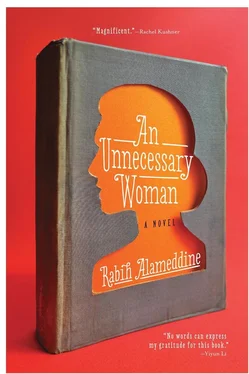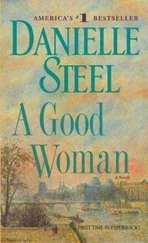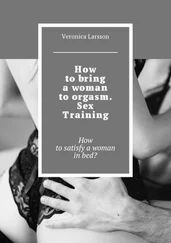Hannah, on the other hand, was dumbfounded that neither I nor the impotent insect had a prayer rug (he was not so much religious as superstitious), and further so when she realized that my mother hadn’t sent one with me to my new matrimonial home (my mother didn’t have one either). She bought me the prayer rug that became the first thing my feet touch when I get out of bed.
Hannah wasn’t meticulous about her prayers. She did her best, but if she missed one or two a day, she took it in stride. She hardly ever performed the afternoon prayer since she arrived at the bookstore most days to help close, and then we’d walk home to my apartment together. Summer light or winter dark, she was there through the years, under umbrellas or beaming skies.
We’d chat as we muddled through the preparation and devouring of the evening meal. One of the images that I can’t forget is of Hannah licking her forefinger and picking crumbs off the tablecloth. She’d sit with me in my reading room, which wasn’t yet as packed with books as it is now, and like a newswire, she’d update me on the adventures of the families, hers and her fiancé’s, my ex-husband’s. Always knitting, she talked and talked while churning out sweaters for all the nieces and nephews of her two families — sweaters that helped her to be loved and to belong.
She visited me during working hours as well, although nowhere near as often, and there at the bookstore she wasn’t chatty. Whether I had customers or not, she sat on a white plastic chair in the corner, knitting soundlessly except for the rhythmic click-clack of the bamboo needles. Sometimes she would write in her journal, her pen scratching faintly in the quiet store. I would be reading at my desk, something she deemed part and parcel of my job, and considerate as she was, she kept me company but left me undisturbed. We were two solitudes benefiting from a grace that was continuously reinvigorated in each other’s presence, two solitudes who nourished each other.
I should say that at times we were three solitudes in the bookstore. She visited on occasion while Ahmad was there. Since neither spoke much while I was working, they got along rather well. I read at my desk, Hannah knitted in one corner, and Ahmad consumed books on the floor. He left me a couple of years before she killed herself.
Hannah taught me many things, but somewhere along the line, I’m not sure exactly when, probably when I was twenty-two or twenty-three, we commenced a new ritual: in the evening, as we sat together in my reading room after the meal, I began to read to her. She would sit on the love seat, quietly knitting, while I, on the navy chenille chair, became the babbling newswire. I read only books of philosophy to her — she always claimed to love the subject — and only in French since her English was weak (she used to say she got befuddled upon encountering the first subordinate clause). Both of us had trouble in the beginning, and frankly it was quite a long time before I understood much of what I was reading. I think it took two years of evenings, probably 1952 and 1953, to read, to leaf through, Le monde comme volonté et comme représentation , and I can’t seriously claim I ever grasped much of Schopenhauer on that first reading, or the second, but I kept trying. In philosophy, I was a page-turner long before I was a reader. I worried the surface till I penetrated the essence.
As I write this, I realize that I can easily tell you how difficult learning was in those first few years, but it wasn’t as easy to admit then. I wasn’t able to share my fears with Hannah in the beginning; I couldn’t tell her how foreign those philosophers sounded, how insurmountable the obstacles to my becoming a learned person felt. My only hope was to fake my way to an education. I assumed that she understood little of what I was reading either, that she listened because she enjoyed the sound of my voice. It took us one whole year to finish Spinoza’s Éthique , the first volume only.
One day in the early history of my bookstore, when I was still unsure of so much, she was knitting on the white plastic chair in the corner when a chic woman walked in trailing a reek of lily perfume and petit bourgeois affectations. Something about her made me feel inadequate. She approached my desk, lifted her sunglasses, and inquired about books by Heidegger, the first time any customer had asked about a philosopher. When I directed her toward the books, she regarded me roguishly and asked, “Which would you recommend?”
She was being mean, entertaining herself at my expense. I was a rube and I looked like one. I could have answered; I’d read Hannah an essay about him, but I hadn’t yet read any of his work. I was embarrassed and about to say the wrong thing.
Without lifting her eyes from the sweater she was working on, Hannah said, “We wouldn’t recommend anything by that proto-Nazi. He’s a third-rate philosopher with a ridiculous knit cap, and trust me, I know my knitting.” I’d shown her the picture that appeared with the critical essay. She continued, sans façons, to embellish what I’d read to her. “His only interest was in posturing, and only posturers are interested in him. A woman of your intelligence shouldn’t waste time reading Heidegger. People who like him confuse philosophy with cooking. Everything he’s written is fried, roasted, and completely baked. Try Schopenhauer — him we can recommend.”
Had we actually understood Heidegger then, we wouldn’t have dismissed him so readily. After all, anyone who says that displacement is a fundamental way of being in the world should have been considered a bit more seriously by the two of us.
We may not have comprehended much in the beginning, but we coped — she helped me cope.
The philosopher I feel the most kinship with is Spinoza; I identify with his story and his life. The Jewish elders of Amsterdam issued a cherem — a fatwa, for you non-Hebrew speakers — against my kinsman when he was a mere twenty-three. He was excommunicated for his heresies. He didn’t fight it, didn’t rebel. He didn’t even whine. He gave up his family inheritance and became a private scholar, a philosopher at home.
In paintings and drawings he is portrayed with big brown eyes (and a big Semitic nose like mine, of course), inquiring eyes that penetrate the darkness surrounding us, and the one within us, by looking unblinkingly — intense, shining eyes that disperse mists and miasmas.
He worked as a lens grinder until the day he died at forty-four, of a disease of the lungs, probably silicosis, exacerbated by the glass dust he inhaled while plying his trade.
He died early trying to help people see.
Like many of the writers and musicians I admire, he never married. Probably died a virgin.
I always assumed that Spinoza lived the life of a hermit after the cherem, but I recently found out that wasn’t the case at all. He had a good number of friends who visited him, and some even supported him financially. So I know that my idea of who he was isn’t accurate, but I still hang on to my myth. Now, if he hadn’t written Ethics —if he hadn’t developed the concepts of religious freedom, freedom of the press, democratic republicanism, and a secular morality detached from theology — I wouldn’t claim him. The fact that he wrote that masterwork is what makes him a genius. The fact that he was, and that I consider him, a pathological outsider is what makes him my favorite.
We so desperately need a Beiruti Baruch, a knight to slay the ecclesiastical dragons, or at least declaw them.
When I run across his name in one of my readings, as in the brilliant novel I mentioned earlier, Sepharad , by Antonio Muñoz Molina, butterflies flap their wings about my heart as if I’ve encountered a lost lover or rediscovered an intimate, an almost sensual experience.
Читать дальше












